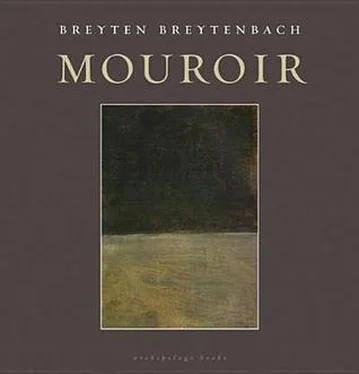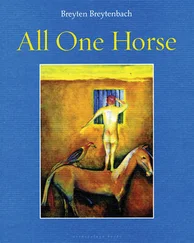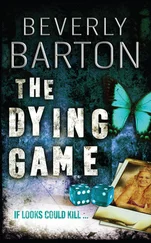Diagonally opposite the chunky town hall an invisible voice calls out to him: “And is that you, Fagotin? Will you be on your way to church then?” And when he offers an affirmative answer, the mellifluous notes proceed: “May we share a stretch of the way with you? Ma and Mumford are heading in the same direction. And I. .”
“Of course! Good evening, madam. Good evening, good evening.” An imaginary hat is lifted politely. Ah, but surely this voice he recognizes. M! Upon my word! It goes without saying that the mother and the little brother must be on their way to church where the father is probably already waiting — isn’t he, apart from being the school principal, the preacher too? (The old man with the muscular shoulders which he keeps easing, the scowl and the large pale hands made for cigars, but he doesn’t smoke.) What would she, M, be doing in town? Fagotin remembers her well. In the dark her silhouette is just a supposed presence, but judging by the soft sounds she must still be walking the same old way — the hips with the loose snaking motion of grab-me-if-you-dare at every step, the back slightly bent, the derrière. . In fact she moves, she scoops, like her mother, only with a younger rhythm. And he remembers her dark hair cut short, bobbing when she walks, the long neck, the prominent nose, the mouth as thin as matches in the water and never very loving. Would she still have the same appearance? It’s a mumble of years since he last met her. In the dark now the creases of those years are erased. But he did hear somewhere that she was married, to a speculator; that she went to settle up north in the Heartland. He will have to ask her what whim or wind brought her back to the Old-Land.
Behind them he hears the crisping of the gravel and the grit under the soles of M’s mother and her little brother. It is so dark that they might as well be on their way to a funeral. And how does he know it’s really her mother and her brother? Without him having to poke her with questions, M starts recounting her married life, the problems with her spouse. Whenever Fagotin feels it is expected of him he utters a sympathetic clucking or muttering. But all this unpacking and airing to go over old bloodstains — it embarrasses him. It’s a long and melancholy tale of groping, of mutual faltering, of sadness. A mess worthy of Gomorrah in fact. The night is heavy with mild odours, with dust.
Where their road crosses Main Street, on the corner in front of Danie van der Merwe’s general store, they tarry a few moments as M announces that she will have to say goodbye here. She will not be accompanying them to church. She doesn’t dare, she says. And without even a handshake she turns away from them. At first he still hears her hip-swing walk, the pleats of her skirt opening and closing in the air, and then nothing more. Sees her in the imagination only. Night has swallowed her. A cricket scratches somewhere; it must be way back in the direction of Pappa Roos’s house. Blessed cricket underneath the magnolia bush!
Together with the others Fagotin turns left up Main Street. Up on the hill the church bell peals away (in) the dark of night. Like this the night is a sexton and the stars are bells. And suddenly raindrops start plopping around them, weighty and muffled in the dust. Fagotin feels a wet spot on his forehead, becomes aware of darker blotches in the tissue of his jacket. Then he looks up and he sees! He sees high around the town the wonderful mountains, uncertainly at first, then with each drop shock by shock ever more clearly. He stands petrified in the tar road and he looks to the left and to the right and everywhere he sees the contoured mountains. He shouts at the others but he doesn’t bother to listen for an answer. With every drop he sees in a more measured way and he realizes now that each temptation withstood and visitation survived brought him closer to this magical gift. (Knowing this, that the trying of his faith worketh patience.) “Do you see it also? Do you also see it?” And he doesn’t even listen. Looks around him. Comprehends all at once that the seeing depends on the searchlight of his eyes — that it is light wherever he looks and where he doesn’t look it remains dark! He sees the summits peaking above the town, the cleanest hues of blue, pink, yellow, green. Sees all those colours distant and vague as if through a layer of ice. It is as though a crust of ice has covered the mountain slopes, right up to the crests, and under the ice insects are scribbling — or is it the shivering of pine trees in the wind? Rain rushes down with the weight of wind. Now he is wet from back to front. And Fagotin goes down on his knees, drooping wet, babbling with deep emotion, bows and kisses the street. Against his lips he feels the blistering ice.
(ii)
The rest I dare not leave to one side. However senseless it may seem here, warmed up afterwards. The possibility offered by the title of the story must be exploited as deeply and thoroughly as possible. A few more connotations should be attached to it. We are moving towards the cut-off. And therefore perhaps the knot of data offered here will be all mixed up. Forgive! I mean, there’s hardly any time left to give the information step by step a structure and a direction. As reader you will just have to read a little harder to interpret the signals. (Even so there are projects which have been interrupted and aborted: there is that which I intended writing about the man with the red nose in his breast — and already a black snake in the belly — about how he leans out of the high window to watch the procession, the flags, the rosettes, listening to the slogans, the bands, the marching masses through the streets chanting in unison: “La mort salaud! Le peuple aura ta peau!” — a way of describing the May Day festivities? There might well have been a picturing of the Algiers incident, the stalwart fellow being felled like an ox among all the shoppers on the street, an epileptic fit, and the obscene public mouth of blood. There could have been a transcription of the wandering through the Tangiers Kasbah, of the visit to a maison close and about the old whore who has to cleanse her feet after having intercourse with the heathen tourist. And a report that should have been dictated, concerning specific aspects of a bum’s existence in Paname, for my old comrade Giovanni Dodd. But this writing is the negative of a skeleton.)
It will not be executed.
First you will hear that Fagotin in earlier times, in years washed by, had a nickname. Tjak. Remember that. One sometimes imagines that you can escape your destination or designation by changing your name. But listen: the fact that something is fixed in words is no guarantee that it will not take place!
Of the time before then, when Tjak together with Minnaar lodged in the monastery (or the gaol). Often they were hungry. So that they were only too keen to devour every last crumb of their rations, to slurp the soup with long lips from the tin dishes. The days are like the waves’ white break and suck, breaking and sucking white.
They are fetched for an outing by Sergeant Roog and Warder Smokes. It is meant to break the routine. They are fetched for a kind of picnic and Martha and Levedi Tjeling are there too, they are going with, it turns out to be a pleasant trip. Follows a story concerning Martha and L.T., background information, but I don’t remember it exactly, and our time is too short, our space too limited.
If there must be a weakness of the intellect, a genetic hitch, which we call “love”, then we would consider it sacred, not so? Yes, near the mirror halls they go to sit in fastidious positions on the silver-green grass under the trees. And they pose in such a way as to look like a Déjeuner sur l’herbe , after the painting based on Marcantonio Raimondi’s Le jugement de Paris . But Sergeant Roog is full of fun and games. He disappears. He returns on horseback. The horse has such muscular haunches. The horse sings and no one can detect the sound. The horse rears up on its hind legs and with this the muscles of the haunches are bunched in clearly defined knots. Sergeant Roog has his automatic in his hand. His grip is firm. He shoots. (He is a jealous man. Life treated him shabbily.) He shoots at the large circular targets. He shoots securely, hitting the bull’s-eye without having to take aim, and the horse rises up and hits out, hits out at nothing with the pawing front legs. He shoots and tumbles over the precipice, away, totally away, far away.
Читать дальше












